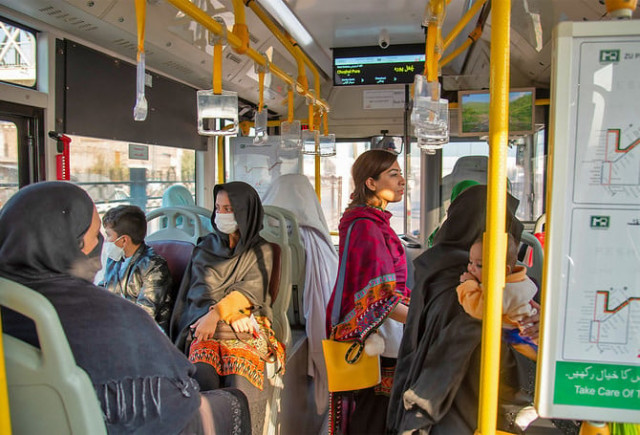Experts declare Faisalabad BRT project 'impractical'
Town planners urge govt to rethink Rs70b metro bus system

Town planners and city managers have declared the proposed Bus Rapid Transit (BRT) system for Faisalabad as "unworkable" and impractical, citing ground realities that are inconsistent with the necessary requirements for population integration, accessibility, ridership levels, cost-effectiveness and urban mobility culture.
The Faisalabad Development Authority (FDA) has intensified efforts to implement a metro bus system in the city at an estimated cost of Rs70 billion.
The project, greenlit by the Punjab government, aims to provide comfortable and affordable intra-city transport for Faisalabad's residents. However, experts argue that the project is not suited to the city's current infrastructure and mobility needs.
Nadeem Khurshid, a town planner from the private sector, highlighted that it is generally inadvisable for a city to implement a mass transit system without first establishing a feeder network or a robust public transit system.
"Mass transit systems like subways or light rail rely on effective feeder networksbuses, trams, or even bike-sharing programsto transport passengers to and from transit stations," he said.
Without these feeder systems, the mass transit network may be underutilised, as potential riders may find it difficult to access the main transit lines, Khurshid warned.
He further emphasised that sufficient ridership levels, a key factor in the success of mass transit systems, are driven by how well connected and accessible the system is to various parts of the city. "Feeder networks help maximise ridership by extending the reach of the mass transit system to suburban and less densely populated areas," he added.
Additionally, Khurshid pointed out that constructing a mass transit system is capital-intensive.
"Without an existing feeder network or public transit infrastructure, the investment may not yield optimal returns if the system is underutilised," he noted.
Cities typically see better returns when they incrementally build their transit infrastructure, starting with buses or trams before committing to high-capacity mass transit systems.
A government sector town planner, who requested anonymity, echoed similar concerns.
"Introducing a mass transit system in a city that lacks a public transit culture can be challenging," he said.
The experts said in cities with established feeder networks, residents are already accustomed to using public transport, making the transition to a more complex mass transit system smoother.
Regarding operational governance, the planner highlighted that mass transit systems are most efficient when integrated with a broader network of transportation options. They were of the view that such integration helps reduce congestion and improves overall mobility within the city.



















COMMENTS
Comments are moderated and generally will be posted if they are on-topic and not abusive.
For more information, please see our Comments FAQ